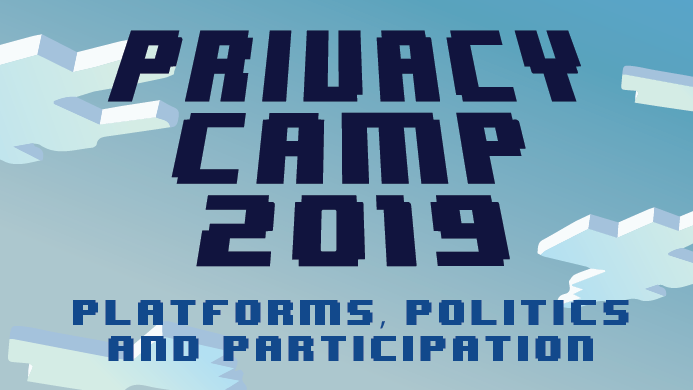Author: Andreea
-

#PrivacyCamp21: Final Schedule
The final programme is here! Take a look at how 26 January will look like at Privacy Camp and get to know who the speakers are. View/download the complete schedule in print format here (pdf). Digital rights for change: Reclaiming infrastructures, repairing the future. With almost a decade’s legacy, this year Privacy Camp zooms in…
-
#PrivacyCamp21: Draft schedule
As promised to many of you, the draft #PrivacyCamp21 schedule is out today. Read below what you can expect from the first online edition of Privacy Camp, taking place this year on 26 January 2021 from 10.00 to 16.05. Digital rights for change: Reclaiming infrastructures, repairing the future. With almost a decade’s legacy, this year…
-
#PrivacyCamp21: Registrations
Registrations for #PrivacyCamp21 are now open. Sign up here by 24 January to ensure your spot. #PrivacyCamp21 is live on 26 January 2021, from 10.00 – 16.00 ! Make sure to read the final schedule and familiarise yourself with the different sessions. The event will use Big Blue Button and attendance instructions will be sent…
-
#PrivacyCamp21: Digital rights for change | Call for Panels
Digital rights for change: Reclaiming infrastructures, repairing the future. The 9th edition of Privacy Camp (26 January 2021) explores the relations between digitalisation, digital rights and infrastructures. 2020 has highlighted the importance of digital infrastructures. Many facets of our personal and social life rely on these infrastructures – from public health to education, from labour…
-
#PrivacyCamp20: Final programme
We are happy to present the final programme of #PrivacyCamp20. This 8th edition of Privacy Camp revolves around the topic of Technology and Activism. Besides panel discussions and workshops, this year, Privacy Camp also brings you a Critical Maker Faire. Click through the grid below to find out the details about each session as well…
-
#PrivacyCamp20: After-Party
Technology and Activism and chats and drinks and a cool DJ line-up. You can have all of them by joining us at the Privacy Camp After – party from 20h onward. Note that from 18h – 20h we will have a food truck feeding us and pre-party chats. The party location is the same one…
-
#PrivacyCamp20: Call for submissions
For #PrivacyCamp20, we call for (1) panel proposals and (2) critical making and DIY project proposals. Participate!
-
#PrivacyCamp20: EDPS – Civil Society Summit 2020
We are pleased to announce that Privacy Camp will host once again the annual EDPS Civil Society Summit on 21 January 2020. For a third year in a row, EDRi members and other important actors in civil society will meet the European Data Protection Supervisor for a discussion on the most ardent threats to our…
-

#PrivacyCamp19: Final programme
We’re delighted to announce the final programme for #PrivacyCamp19.
